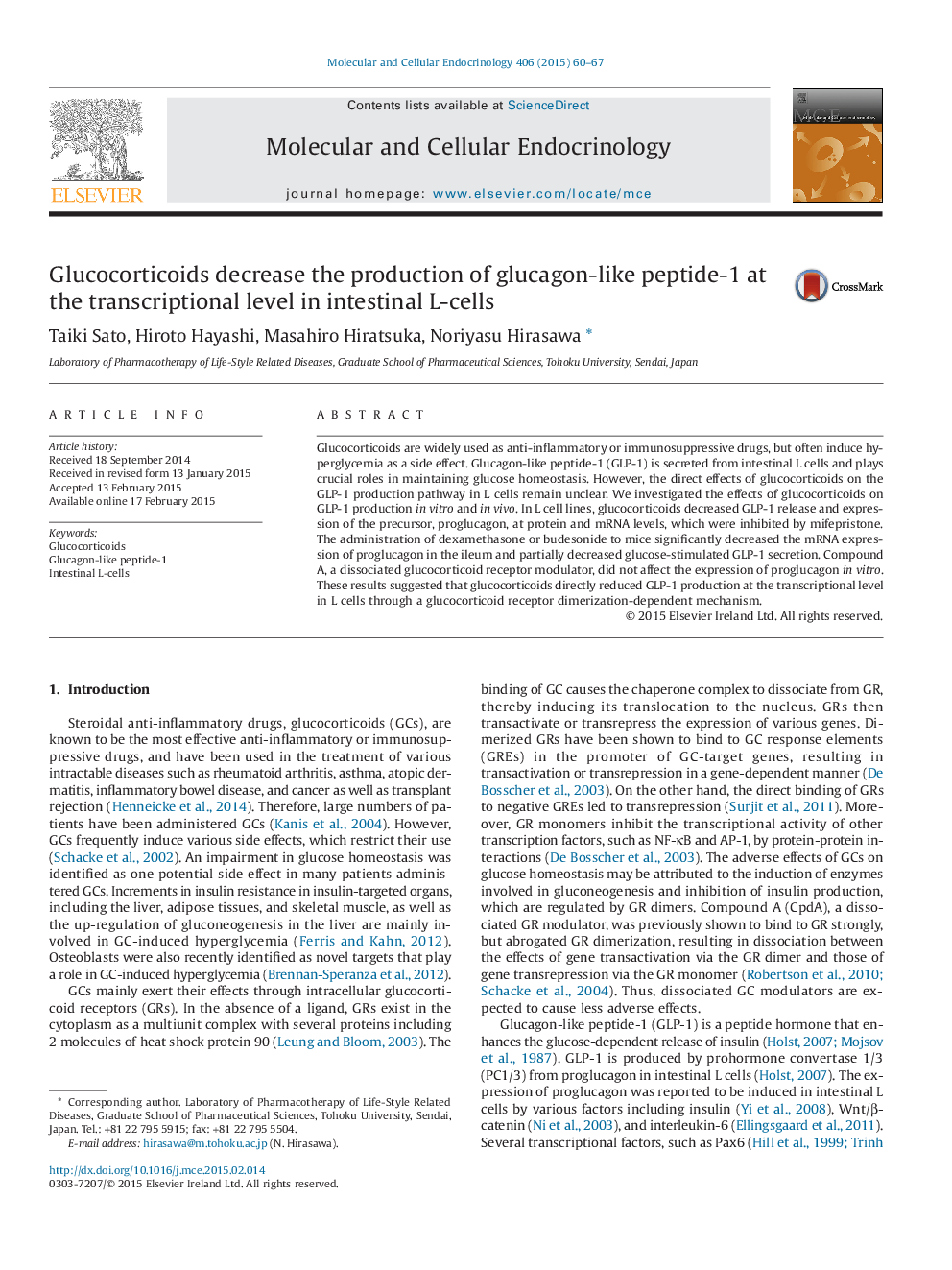| Article ID | Journal | Published Year | Pages | File Type |
|---|---|---|---|---|
| 2195846 | Molecular and Cellular Endocrinology | 2015 | 8 Pages |
•We examined the effects of glucocorticoids on glucagon-like peptide-1 production.•Glucocorticoids reduced glucagon-like peptide-1 release in intestinal L cell lines.•Glucocorticoids reduced the expression of proglucagon at protein and mRNA levels.•In mice, glucocorticoids reduced the mRNA expression of proglucagon in the ileum.•These effects in L cells depended on the dimerization of glucocorticoid receptors.
Glucocorticoids are widely used as anti-inflammatory or immunosuppressive drugs, but often induce hyperglycemia as a side effect. Glucagon-like peptide-1 (GLP-1) is secreted from intestinal L cells and plays crucial roles in maintaining glucose homeostasis. However, the direct effects of glucocorticoids on the GLP-1 production pathway in L cells remain unclear. We investigated the effects of glucocorticoids on GLP-1 production in vitro and in vivo. In L cell lines, glucocorticoids decreased GLP-1 release and expression of the precursor, proglucagon, at protein and mRNA levels, which were inhibited by mifepristone. The administration of dexamethasone or budesonide to mice significantly decreased the mRNA expression of proglucagon in the ileum and partially decreased glucose-stimulated GLP-1 secretion. Compound A, a dissociated glucocorticoid receptor modulator, did not affect the expression of proglucagon in vitro. These results suggested that glucocorticoids directly reduced GLP-1 production at the transcriptional level in L cells through a glucocorticoid receptor dimerization-dependent mechanism.
